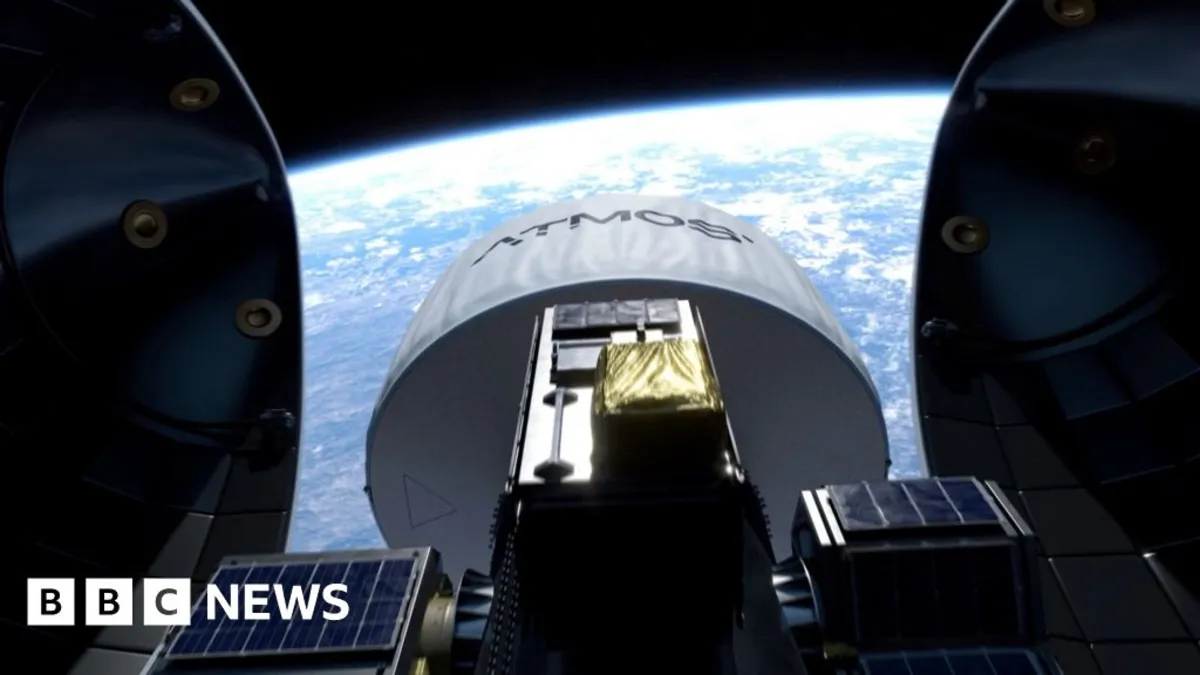
In a groundbreaking development for space exploration, an experiment aimed at growing food in space has successfully launched. This project, led by the European Space Agency (ESA), explores the feasibility of cultivating lab-grown food in the unique conditions of low gravity and higher radiation found in space. If successful, this initiative could revolutionize how astronauts are fed, potentially allowing for the production of familiar meals like steak, mashed potatoes, and desserts directly in orbit.
The ESA is funding this innovative research to address a critical challenge: the exorbitant cost of feeding astronauts, which can reach up to £20,000 per day. The team involved sees this experiment as a crucial first step toward establishing a small pilot food production facility on the International Space Station (ISS) within the next two years. According to Dr. Aqeel Shamsul, CEO and founder of Bedford-based Frontier Space, lab-grown food is vital for NASA's vision of making humanity a multi-planetary species. He envisions a future where manufacturing facilities exist not only in orbit but also on the Moon, enabling sustainable living and working conditions for humans in space.
Lab-grown food involves cultivating essential food ingredients—such as proteins, fats, and carbohydrates—in controlled environments like test tubes and bioreactors. These ingredients are then processed to resemble traditional food items. Currently, lab-grown chicken is available in the US and Singapore, while lab-grown steak awaits approval in the UK and Israel. On Earth, this technology is touted for its environmental advantages over conventional agricultural practices, such as reduced land use and lower greenhouse gas emissions. However, in space, the primary motivation is to significantly lower food costs.
As NASA and other space agencies, along with private firms, plan for a long-term presence on the Moon and potentially Mars, the logistics of feeding dozens—if not hundreds—of astronauts becomes increasingly daunting. Dr. Shamsul argues that growing food in space is a more practical solution than relying on rocket deliveries. He proposes starting with simple offerings like protein-enriched mashed potatoes, gradually advancing to more complex meals that could be created from lab-grown ingredients using 3D printing technology. This concept mirrors the futuristic replicators seen in Star Trek, transforming science fiction into reality.
At Imperial College's Bezos Centre for Sustainable Proteins, researchers employ a process known as precision fermentation, which modifies yeast to produce essential nutrients. Dr. Rodrigo Ledesma-Amaro, Director of the Bezos Centre, emphasizes that this method can yield various components necessary for food production, including proteins, fats, and carbohydrates. A compact version of this bioreactor has been dispatched into space aboard a SpaceX Falcon 9 rocket as part of the ESA mission. The aim is to determine whether these biological processes can thrive in the challenging conditions of space.
The experiment involves sending a yeast concoction to orbit within a small cube satellite on Europe's first commercial returnable spacecraft, Phoenix. If all goes as planned, the satellite will orbit Earth for approximately three hours before returning to a designated location off the coast of Portugal. A recovery vessel will then collect the samples, which will be analyzed back at the London lab. The data gathered will aid in the development of a larger bioreactor expected to be sent into space the following year.
While the initial product—a brick-colored goo—may not appear appetizing, culinary expert Jakub Radzikowski from Imperial College is working to transform this science into palatable cuisine. Although he is currently using naturally occurring starches and proteins for his recipes, he is preparing for the day when lab-grown ingredients receive regulatory approval. His goal is to create a diverse array of dishes that resonate with astronauts from different cultural backgrounds, ensuring comfort food can be replicated in space.
Recently, Radzikowski showcased a new recipe of spicy dumplings, which were taste-tested by Helen Sharman, the UK's first astronaut and a PhD chemist. Both agreed that the dumplings were delicious, showcasing a potential shift in astronaut food from long-lasting freeze-dried options to more flavorful, freshly prepared meals. Dr. Sharman noted that lab-grown food could not only enhance the taste and variety of astronaut diets but also address nutritional deficiencies encountered during long-duration space missions. By incorporating tailored ingredients, lab-grown food could ensure astronauts receive balanced nutrition, ultimately improving their health and morale in space.
As the journey to grow food in space progresses, the implications for long-term human habitation in space are profound. If successful, lab-grown food could pave the way for sustainable living on other planets, allowing astronauts to enjoy familiar meals while significantly reducing costs. This mission marks a significant leap toward making space a more hospitable environment for human life, turning a once distant dream into a tangible reality.